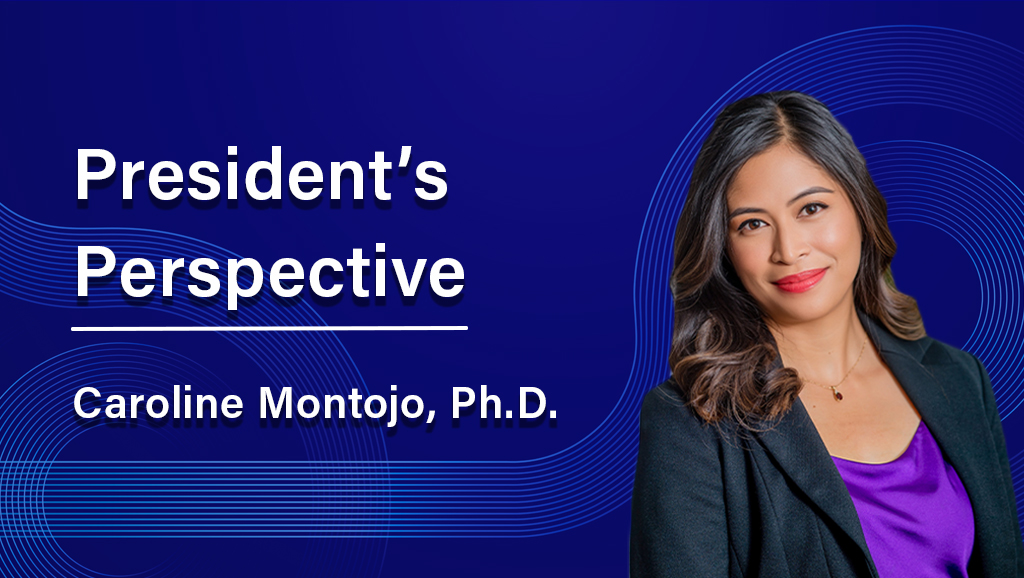President's Perspective
Enabling Fundamental Conditions for Our Neuroscience & Society Mission

The past ten months have made clear that the environment surrounding science in the US has shifted in significant, fundamental ways. Many federal programs have been paused or reduced, timelines have become unpredictable, and the ripple effects continue to be felt across research institutions, training programs, and the broader science ecosystem today. While philanthropy can catalyze new approaches in research and innovation, it cannot replace the essential role of federal funding in maintaining a healthy, resilient research ecosystem. This year reinforced, in profound ways, that achieving our mission requires not only investing in neuroscience and society, but also collaboratively safeguarding the infrastructure, people, and policies that make scientific progress possible.
Earlier this year, we paid particular attention to listening and understanding. Dana Foundation staff met with grantees, applicants, and partners across the field to better understand how these shifts are affecting their work and their people. We learned of federal grants abruptly cancelled, students suddenly without a path forward, and faculty unsure of how to keep their labs running. Based on these responses, we simplified our application process, accelerated decision timelines, and increased our grantmaking so support could reach organizations when it was most needed. These changes reflect our commitment to be responsive and to remain grounded in the realities of our community.
Over the past four years, the Foundation has pursued a deliberate, long-view strategy to bolster the emerging paradigm of neuroscience and society—work that bridges brain science with fields such as ethics, law, and policy to deepen its positive impact on people and communities. We remain committed to catalyzing this work so that the science of the future has strong, evidence-based models to build upon.
We have supported early experimentation through pilot grants, made deeper investments through partnerships with academic institutions including the Dana Center Initiative for Neuroscience & Society, and elevated the field through convenings such as the Science Philanthropy Alliance partner meeting and the mentoring reception at the Society for Neuroscience annual meeting. Our efforts focus on areas that are essential and often under-resourced, such as interdisciplinary training for scientists to shepherd neuroscience for public good, educational programs for judges and decision makers, and meaningful involvement of patients and communities in shaping new neurotechnologies.
We are beginning to see early outcomes that signal this “& society” paradigm taking deeper root. Students in the Loyola University Chicago Dana Program are seeing themselves in science and imagining futures in neuroscience. Undergraduate and graduate participants in the Career Network for Neuroscience & Society are choosing pathways in emerging areas like neuroethics and neurolaw. Patients with spinal cord injury are working directly with brain–computer interface developers to define clinical outcome measures grounded in patient priorities—guidance that will inform regulators, insurers, and future clinical adoption.
While this progress is encouraging, the federal disruptions this year stressed that long-term progress requires continuous and collaborative stewardship of a stable infrastructure around the research enterprise. To help safeguard components of that foundation, we are supporting organizations working in areas that are essential to a healthy science ecosystem, including:
- Research!America: Advancing public and policymaker understanding of the importance of sustained medical and scientific research funding.
- AAAS Science & Technology Policy Fellowships: Providing support during a year when federal placements were sharply reduced, helping the program adapt to a changed landscape.
- ScienceWriters 2025: Ensuring that the largest annual gathering of science journalists and communicators could proceed during a year of instability.
- Dana Rapid Response Neuroscience & Society Grants: Offering bridge funding to scholars and teams whose neuroscience and society work was disrupted by grant cancellations, delays, or reductions.
Investments like these help protect the essential conditions that allow research to continue: public trust, credible communication, science-informed policymaking, and the continuity of the research workforce.
The road is long, and the year ahead will undoubtedly bring continued challenges for the science ecosystem. Yet, I expect it will also bring new collaborations, new ideas, and opportunities borne out of the shared desire to both protect and strengthen this field that has profound impacts on our daily lives. To uphold our mission and support this broader ecosystem that makes it possible, next year we will be directing additional resources to grantees. By reinforcing the fundamentals of the science ecosystem, we help ensure that neuroscience not only navigates this period of disruption but emerges more connected—and better prepared to serve society.
